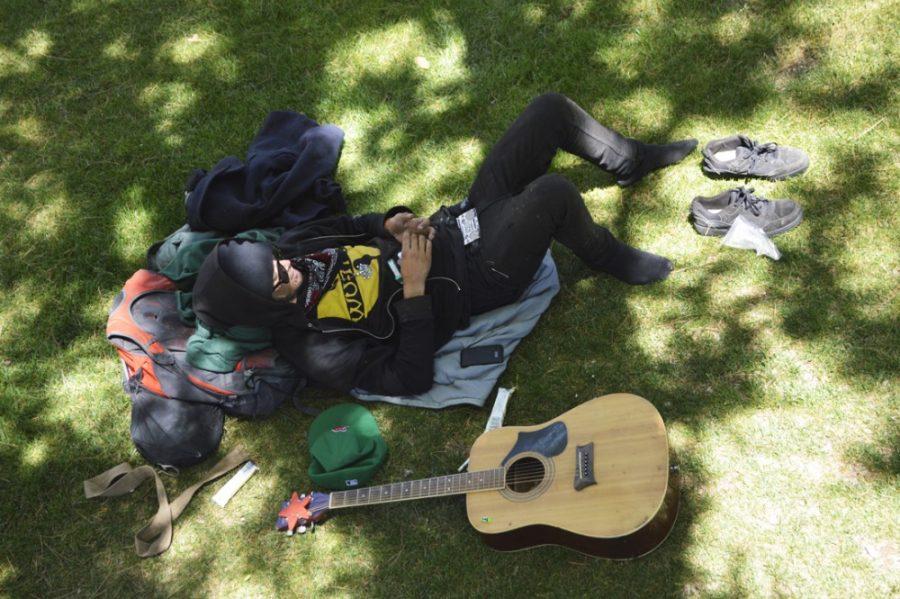Tucson Field Workshop, a UA course taught by associate professor Brian Mayer, aims to collect data off low-income families in order to address and identify problems that nonprofit organizations work to fix.
“It’s important because the University of Arizona is a part of the city of Tucson,” Mayer said. “So, we have responsibilities for addressing local issues and providing expertise, … our data … and our recommendations. Mayor [Jonathan] Rothschild came to our class … and thanked [the students] for participating in the class.
He said one of the things that’s important to him as the mayor is to literally walk the streets and to get a sense of what people that live in this city are experiencing.”
The Tucson Field Workshop teaches students through firsthand experience and active learning outside of the traditional classroom setting.
“I could teach a 300 person lecture, pull up some slides with some [photographs], or watch a movie about poverty or homelessness,” Mayer said, “and it would be a very different experience than asking students to go out to the community and walk around a neighborhood that might have high levels of poverty.”
According to Mayer, Tucson has a rather low cost of living, and the poverty line is not the best indicator of deprivation or hardship.
“The biggest thing I was able to take away from participating in this class was the difficulty of everyday life for a lot of Tucsonans due to the lack of accessibility of certain programs or simply the lack of knowledge of these programs,” said Alexis Montoya, a physiology senior.
Montoya said one of the challenges of this course was convincing participants that their survey would help local nonprofit organizations and the Tucson community in general.
“There [has been] an improvement in poverty and homelessness rates in the past few years as a result of broadening the accessibility to programs that are out there to help the impoverished,” Montoya said. “I think it might continue to improve but on a very slow basis.”
She encourages her fellow students to take the Tucson Field Workshop course, because it is an interactive, outgoing and rewarding course.
“You need to be a hard worker to survive this course and for it to pay off in the long run,” Montoya said. “Listening to the stories of the people in Tucson is a remarkable and unforgettable experience that comes only second to helping them out in ways that others might not get the opportunity.”
According to Michael McDonald, CEO of the Community Food Bank of Southern Arizona, the food bank has been a founding participant of Rothschild’s poverty commission.
“The commission then worked with UA to do some original research on poverty in our community,” McDonald said, “and the food bank and other nonprofits have been financially supportive of that endeavor just to gather a greater level of information, so that interventions could be developed to more effectively address the socioeconomic challenges that people living in poverty face each and every day.”
McDonald added that this year, the Community Food Bank made a $5,000 payment to the poverty lab. He said the organization will be supportive, “as long as the class continues to deliver value and there are other nonprofits doing that as well.”
The data collected by the spring semester students will be presented via community forum to the Tucson community on May 15 at Habitat for Humanity Tucson from 9-11 a.m.
_______________
Follow Terrie Brianna on Twitter.








